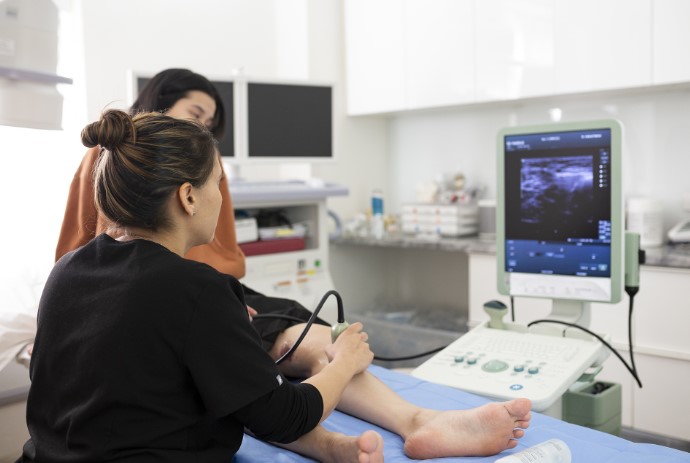Varicose veins are a common issue that affects many individuals, leading to discomfort and cosmetic concerns. When seeking treatment, it’s crucial to know the right professional to consult. So, what is a varicose vein specialist called, and how can they help you manage your condition effectively? This article explores the role of a varicose vein specialist, the various treatment options available, and why consulting one is beneficial.
Understanding Varicose Veins
Before diving into the specialists who treat them, it’s important to understand what varicose veins are. Varicose veins occur when veins become enlarged, twisted, or swollen, often due to weakened valves in the veins. They can appear bluish or dark purple and are most commonly found in the legs. Common symptoms include:
- Aching or heavy legs
- Swelling in the lower legs
- Itching around the veins
- Skin changes in the affected area
While often considered a cosmetic issue, varicose veins can lead to more severe health problems if left untreated.
Who Is a Varicose Vein Specialist?
The term “varicose vein specialist” typically refers to a medical professional who specializes in diagnosing and treating venous disorders, including varicose veins. These specialists can be:
- Phlebologists: Doctors who specialize in the diagnosis and treatment of vein diseases.
- Vascular Surgeons: Surgeons trained to perform procedures related to blood vessels, including varicose veins.
- Dermatologists: Some dermatologists focus on skin-related vein issues, including cosmetic treatments for varicose veins.
- Interventional Radiologists: Specialists who use imaging techniques to perform minimally invasive procedures for vein treatment.
Each of these specialists brings unique skills to the table, ensuring comprehensive care for patients with varicose veins.
Why Consult a Varicose Vein Specialist?
- Expert Diagnosis
A varicose vein specialist has extensive training and experience in diagnosing venous disorders. They can identify the underlying causes of your varicose veins, such as valve dysfunction or blood clots, which is essential for effective treatment. - Personalized Treatment Plans
Every patient is different, and a specialist will tailor a treatment plan that meets your specific needs. Whether you’re dealing with mild discomfort or severe symptoms, a tailored approach ensures the best possible outcome. - Access to Advanced Treatment Options
Varicose vein specialists have access to the latest technology and treatments. They can offer both traditional and minimally invasive procedures, such as:
-
- Endovenous Laser Therapy (EVLT): A minimally invasive procedure using laser energy to close off affected veins.
- Sclerotherapy: A non-surgical treatment where a solution is injected into the vein, causing it to collapse and fade.
- Vein Stripping: A surgical procedure that involves removing the varicose vein entirely.
- Comprehensive Care
Many specialists offer a holistic approach, addressing not only the physical symptoms but also providing guidance on lifestyle changes to improve vein health. This might include advice on diet, exercise, and compression therapy.
What to Expect During Your Appointment
When you visit a varicose vein specialist, you can expect a thorough evaluation. Here’s a typical process:
- Medical History Review
The specialist will begin by asking about your medical history, including any previous vein-related issues, surgeries, and family history of vein problems. - Physical Examination
A physical examination will follow, where the specialist will assess the affected areas and check for swelling or tenderness. - Diagnostic Imaging
To get a clearer picture of your vein health, the specialist may perform an ultrasound. This imaging technique helps visualize blood flow and identify any underlying problems in the veins. - Discussion of Treatment Options
Based on the evaluation, the specialist will discuss your treatment options, including the pros and cons of each approach. They will answer any questions you have to ensure you’re fully informed before proceeding.
How to Choose the Right Varicose Vein Specialist
Finding the right specialist can significantly impact your treatment outcomes. Consider the following when choosing a varicose vein specialist:
- Credentials and Experience
Ensure the specialist is board-certified and has experience in treating varicose veins. Check their qualifications and any additional training in vein care. - Patient Reviews
Look for patient testimonials or reviews online. Feedback from previous patients can provide insights into the specialist’s expertise and bedside manner. - Consultation Availability
Choose a specialist who offers consultations. Meeting them beforehand allows you to discuss your concerns and gauge their approach to treatment. - Location and Accessibility
Consider the location of the specialist’s office and the convenience of scheduling appointments, especially if multiple visits are necessary.
Lifestyle Changes to Support Vein Health
While consulting a varicose vein specialist is crucial, adopting healthy lifestyle habits can also support your treatment. Here are some suggestions:
- Regular Exercise
Engaging in regular physical activity helps improve circulation and strengthen your leg muscles. Aim for at least 30 minutes of moderate exercise most days of the week. - Maintain a Healthy Weight
Excess weight can put additional pressure on your veins, worsening varicose veins. A balanced diet combined with regular exercise can help you achieve and maintain a healthy weight. - Avoid Prolonged Sitting or Standing
If your job requires long periods of sitting or standing, take frequent breaks to walk around or stretch your legs. This movement promotes better blood flow. - Wear Compression Stockings
Compression stockings can help improve circulation in your legs and alleviate symptoms associated with varicose veins. Consult your specialist for recommendations on the best type to use.
Who Is a Varicose Vein Specialist?
A varicose vein specialist is commonly referred to as a vascular specialist or phlebologist. These medical professionals have specialized training in diagnosing and treating conditions related to the veins, arteries, and circulatory system. While some vascular specialists focus on a wide range of vascular diseases, phlebologists specifically concentrate on vein-related conditions, such as varicose veins and spider veins.
Phlebologists and vascular specialists are well-versed in the anatomy of the vascular system, making them the go-to doctors for treating varicose veins. Both professions can provide expert advice and treatment options, but phlebologists often dedicate their practice exclusively to venous issues.
What Does a Vascular Specialist Do?
A vascular specialist diagnoses and treats disorders of the blood vessels. Varicose veins occur when the valves in the veins malfunction, causing blood to pool rather than flow properly. This can lead to the development of twisted, swollen veins near the surface of the skin. Vascular specialists focus on treating these conditions through a variety of techniques.
How Can a Phlebologist Help?
A phlebologist is a type of doctor who specializes in treating veins, particularly varicose veins. They provide both cosmetic and medical treatments, depending on the severity of the condition. Whether the concern is discomfort or aesthetics, a phlebologist can offer various treatments, such as laser therapy, sclerotherapy, or minimally invasive surgeries.
These specialists are knowledgeable about the latest non-invasive and minimally invasive techniques that are designed to improve blood flow, reduce swelling, and prevent further complications. Phlebologists also educate patients on preventive measures to keep varicose veins from worsening.
Conclusion
In summary, understanding what a varicose vein specialist is called is crucial for anyone experiencing symptoms related to varicose veins. By consulting a qualified professional, you can receive an accurate diagnosis and effective treatment tailored to your needs. With the right approach, managing varicose veins can lead to improved comfort and enhanced quality of life. Don’t hesitate to seek help; your journey to healthier veins starts with the right specialist.




